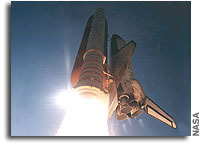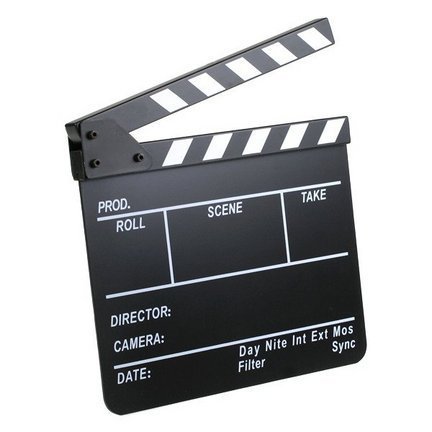Steven Lyle Jordan's Blog, page 68
August 16, 2011
Want a sample of me?
 Check out Evoguía, one of my earliest superior works, and now FREE on my site! I have other free material on my site, but other than a set of short stories (the Onuissance Cells), most of them are throwaway efforts, largely humorous, not SF. Although I've heard good things about them, I also constantly heard the opinion of many that I really ought to be taking one of my full novels, one that is more representative of my writing, and put that up for free.
Check out Evoguía, one of my earliest superior works, and now FREE on my site! I have other free material on my site, but other than a set of short stories (the Onuissance Cells), most of them are throwaway efforts, largely humorous, not SF. Although I've heard good things about them, I also constantly heard the opinion of many that I really ought to be taking one of my full novels, one that is more representative of my writing, and put that up for free.
I resisted this advice for quite some time, until I heard it from someone whom I respect more than all of those authors and readers combined… my father. When he suggested one of my better books should be free, I listened. And as I'd just finished re-editing and proofing Evoguía for re-release, and as it happened to be a very good story, I decided that it made a very good candidate for free-sample-hood.
The story starts off in Atlanta, Ga, in roughly the present day (a day now passed, due to the age of the novel, but it doesn't seriously detract from the story), and continues on through two more generations related to the main characters: Dr. Anitra Juarez, the developer of the human augmentation experiments; and her subjects, John Jafar, Nami Waters, Nicolette Larson, and Harvey Taim, who usher in a new species of Mankind, and all that that implies. The epilogue gives us a final look, many generations in the future, of a world that has been forever altered by Dr. Juarez' experiments.
This was my attempt to find a method of human "improvement" that didn't have to involve genetic experimentation and manipulation, processes that are much further out than we would like to think, and which (in popular media) inevitably lead to lab rats-turned-Frankenstein Monsters and runaway mutations of the absurd kind.
Evoguía's storied experiments are based on observation of real-life examples of human augmentation, such as the yogis of Asia, the Shamans of the America, the Pacific pearl divers, etc… people who have learned to manipulate and control the autonomous functions of their bodies through natural meditation and practice… and assisted by modern biofeedback techniques to aid the self-teaching process. There are no magic elixirs, genetics geniuses, freak accidents or bumbling terrorists wrecking critical experiments at the exact worst time… which makes the events of the story that much more impacting, as they could very conceivably happen.
This is the kind of story I most enjoy writing, realistic and exciting… many authors will try to give you one, but not the other. I like both.
So, check it out. Enjoy. And if you do, check out some of my other books… and tell a few friends to check them out, too.








August 13, 2011
Writing vs the Lottery: Which is better for everyone?
 Some online comments I read recently made a point about the potential success of the indie ebook writer that I had never considered before: The odds of becoming a successful indie ebook writer (and by "successful," I mean earning a significant income from ebooks) is actually lower than your chances of winning the lottery.
Some online comments I read recently made a point about the potential success of the indie ebook writer that I had never considered before: The odds of becoming a successful indie ebook writer (and by "successful," I mean earning a significant income from ebooks) is actually lower than your chances of winning the lottery.
Once I got past the depressing implication of that statement, I started thinking about it practically, to wit: If I had the choice of either writing or playing the lottery, which would be better for me… and for everyone in general?
Sure, it sounds on its surface like a silly question, but consider this: Both activities can be said to pay dividends to the user, and to everyone else. In the case of writing, the writer is said to gain a personal reward from the process of writing itself. Their readers are also supposed to gain from reading said books. And if the author is very lucky, they will gain a significant monetary reward from writing.
Now consider the lottery: It is presented as a game, so the player is supposed to gain some enjoyment from the play and from the suspense of the outcome. Lottery money generally goes to charities or community funds, so the money spent by a player benefits others in providing finances for community services. And if the player is very lucky, they will win a significant cash outlay from playing.
So let's compare the benefits of the two: First, the personal act. A writer and a lottery player both receive an abstract psychological pleasure out of writing and playing, neither of which can be directly quantified. It can be said, however, that whereas the writer is performing an act of creation that is worth some monetary amount based on the time spent in writing—which can be roughly quantifiable—a lottery player is not engaged in an act of creation which could be quantifiable, but in the process of spending money, which is specifically quantifiable… in negative numbers. Of course, while the writer writes, they are not earning money for the work they're putting in. So at the outset, both the writer and the lottery player are essentially losing money in the pursuit of personal enjoyment. Is that lost money equal to the amount of enjoyment they get from writing or playing? That is an arbitrary question, and left up to the writer and the player to figure out. But at this point, they are the only ones who have lost anything.
We are assuming, of course, that the process of writing and of lottery playing is not being done at the expense of other tasks in need of their time, or budgets in need of that money to balance. It may also be worth noting that the average writer will put in hundreds of hours in writing, a market value of thousands of dollars worth of their time; a lottery player who spends that much money on the lottery may be considered to have a gambling addiction. (Hmm… if expending so much effort, despite a probability of no success, could be considered an addiction… maybe we need a Gamblers Anonymous for writers…)
Second, the benefit to everyone else: A writer's book can be sold to individuals, who can derive enjoyment or knowledge out of reading it. Unless it is a textbook, the enjoyment or knowledge will likely not extend much beyond the reader; perhaps to a friend or loved one who is the recipient of some action or information imparted by the reader. And the number of sold books may be small, limiting the benefit it provides to a very few individuals.
Compare this to a lottery cache, which will enter a charity or community coffer, and potentially benefit many people through its application to community works. In this case, the lottery will probably receive the larger benefit, and therefore, so will the community. Certainly the community benefit will be more lasting, even if the writer's book turns out to be fairly popular.
Many individuals (okay… a few individuals, really) may not be enamored about the loss of a good book to entertain them. However, as Mr. Spock once said, "The needs of the many outweigh the needs of the few, or the one". So, in this case, giving attention to the lottery, as opposed to writing, would be the greater good.
And finally, the chance of being a big winner: The potential success of a book can net a writer thousands, perhaps hundreds of thousands of dollars; very few authors can expect or get better than that, and many "successful" authors don't make that much from a single book (which is why they keep writing). In contrast, a single lottery win can easily surpass the million dollar mark, and potentially pay out enough to make sure the winner never has to work again.
But the odds of making a lot of money from writing are incredibly slim (this is based on the number of indie writers, and the number of books produced in a year, versus the number of indies who score a significant success in the market). A regular lottery player has better odds of winning money from the lottery… even big, multi-million dollar payouts have better odds than writing success. The odds are clearly in the lottery's favor here—funny how that works, as in fact, the odds are within the lottery's favor to keep most of the money it collects, including the interest it makes on the money it holds until it pays out (the lesson being that if you want to make real money, maybe you should be running a lottery).
So: When you put all of this together, it suggests that the writer who writes specifically to make money would be better off replacing his computer with a handful of lottery tickets, for a number of reasons: The personal sense of enjoyment from playing the lottery would be roughly comparable to the act of writing; the proceeds from playing would benefit more people, through community support, compared to writing and benefiting the few readers who buy the book; and the payoff is more likely and significantly higher than the expected payoff from selling books.
Does this mean that all of us hopeful writers should abandon our stories and take up lottery playing, for the public good and our own more likely success? Clearly. Will we? Probably not. We may need an intervention to get us to Writer's Anonymous, but don't expect us to check ourselves in. After all, we're not out of control. We can stop writing… anytime we want to…








August 11, 2011
Vacationing efficiently
A recent long-weekend vacation, taken by me and my wife, saw me driving from my home north of Washington, DC, to Atlanta, Ga, then to Nags Head, NC, and back home. We drove for a few reasons: One, I am increasingly un-enamored with plane flight (the cost, the hassle, the security, the discomfort); Two, we weren't sure of our return stopover; and Three, we weren't sure of our schedule (we were afraid of being called midway through vaca by the vet, to tell us our 18-year-old cat was about to die in their boarding care, and the vaca would be cut short).
Anyway, the trip went as scheduled, everyone had a great time, and even the cat survived without an episode. But the trip found me thinking about my transportation choice: Environmentally speaking, was it better for me to drive that trip… or, if I could've arranged it, should we have flown?
The answer depends on what you think is most important. For instance, there is no question that a fully-boarded jet airliner will use less fuel per person per mile than a car will. The difference isn't even close. There's no doubt that I accelerated our race to Peak Oil that much faster.
On the other hand, jet airliners are particularly dirty forms of transportation. According to Earthtalk, an environmental question-and-answer column that is a regular feature of E/The Environmental Magazine:
In assessing the global warming impact of a trip from Philadelphia to Boston (about 300 miles), the environmental news website Grist.org calculates that driving would generate about 104 kilograms of carbon dioxide (CO2)—a leading greenhouse gas—per typical medium-sized car, regardless of the number of passengers, while flying on a commercial jet would produce some 184 kilograms of CO2 per passenger.
And since my car is of the 30MPG/hwy caliber, these figures probably mirror my CO2 output versus a jet. So, driving means I used more gas, but polluted almost a quarter less (184 times two passengers, versus 104–then multiply these figures by 3, roughly the equivalent of the miles we actually traveled compared to the 300 mile example).
But there's more: Add to your driving the extra time spent, and the stops for food (probably of the rapidly-served and minimally-nutritious variety) and what-not, and you're adding more to your carbon footprint (and probably your waistline). And obviously, the longer you travel, the more the numbers swing back into the jet's favor. Who's ahead now?
It's a difficult calculation to make, clearly. It's further complicated by the fact that another form of transportation beats out both car and jet: Trains. Unfortunately, the sad state of the US train infrastructure in any region other than the Northeast Corridor makes train use undesirable for many, and downright impossible for some trips (unless you like riding in crates).
Back to the car: Things that helped smooth out our trip included keeping our speed down, avoiding quick-starts and sudden acceleration (okay… I wasn't real good there), making sure my tires were properly inflated, and using cruise-control as much as possible… all of those things will help your car run more efficiently and use less gas. Between me, my wife, and the car, we had 3 digital map systems to keep us on the right roads and avoid wasting time driving while lost.
So, thinking past the drive, we stayed in 3 hotels over 5 days. How efficient are hotels? Well, modern hotels vary in efficiency, and manage it in different ways. The first place we stayed in was a motel, with the typical loud as hell air conditioning unit with minimal manual controls (hi, lo, off) under a single-pane picture window, old plumbing and paper-thin walls… very inefficient. The second place was the Lowes Atlanta, a modern high-rise with mirrored high-efficiency glass picture windows, a central air system with electronic controls, better plumbing, thicker walls, and the latest practice of allowing guests to selectively hold back towels and sheets for daily washing, saving on cleaning energy. The third place was a mid-rise hotel with mirrored glass over a single-pane glass, under-window AC unit with hi-lo-off manual controls, old plumbing and paper-thin walls… about the same as the first place, which wasn't so efficient.
You don't often have much of a choice when staying in hotels or motels, and rarely can you get reliable information about their green aspects in advance of your stay. If you want to be green, prepare to spend some dough, because most places that have upgraded to green specs will charge you for it. Of course, hotels and motels are using their energy to heat/cool/supply a much larger space, which implies a greater efficiency overall; if it's built well, you will be using less energy. If you can, see if you can find homes or condos to rent for a stay of a week or more; they will likely be more efficient than the basic and cut-rate hotels and motels, especially if the owners actually live in the units themselves from time to time.
In terms of travel, driving at night (or between evening and morning rush hours) means less traffic, therefore smoother travel. Your stopping choices are more limited, so do yourself a favor and bring your own food and snacks, like fruit, healthy sandwiches, fruit juices and water, in a cooler… avoid the gas station Kwik-E-Marts and fast food joints as much as you can, and you'll arrive at your destination with more cash in your pocket and less junk in your belly. And stopping along the way for a snooze is preferable to driving when half-asleep… get the rest you need, even if you're just sleeping in your car (preferably while it isn't moving).
I had plenty of time to think about all of this, considering I spent a total of 25 hours behind the wheel of my car… more than 1/6 of my 6-day vacation. I also spent a lot in gas and food, and a bit of mental stress over subjecting my 11-year-old car to its longest single road trip ever, in high-nineties heat (ask my car if it believes in Global Warming… you will get a rev in the clear affirmative).
But even though we'd minimally planned the trip, and even though some aspects were better than others, we managed to be reasonably green and efficient doing it, without adding any negative experiences to the trip. As with everything, it's about balance: Find the green alternatives that work for you, and try to make them cancel out the non-green aspects, until you're more green than non. Then, once you're on vacation you can think about the ways in which you are improving the planet to add to your peace of mind.








July 29, 2011
Foreign automakers already have what America needs
While the EPA knocks out a new CAFE standard of just under 55MPG by 2025 (which the U.S. automakers can still weasel out of as they have in the past), BMW reveals two new electric concepts, the i3 and the i8.
The i3, a full electric 4-seat hatchback designed for urban driving (formerly the Mega-City vehicle), will be able to travel 80 miles on a charge, and its quick-charger will get it 80% charged in an hour. The i8 is a hybrid that will travel 20 miles before switching to a 3-liter gas engine.
While the i8 is, to my mind, more of a show-off toy, the i3 seems a very practical vehicle for city and suburban use… I'd put it on my list of cars to check out, alongside the Leaf and other full electrics… none of which are being made by the Big 3 U.S. automakers.
On the gas engine side, Hyundai advertises 4 cars available now that get 40MPG, at a time when most automakers boast about getting 30MPG (like my mother's '85 Datsun achieved when it was released).
There's no question that U.S. automakers have pulled out all the stops over the last 30 years to avoid making their vehicles as fuel-efficient as they could be, while appealing to America's vanity and selling them luxury trucks. And now, they apply the same tricks as yesteryear, claiming that raising standards will "cost too much" and "force them to cut jobs" in response, while bragging about cars that make 1985 MPG numbers. This "fool me twice" response to the world's need to cut back on gasoline use and pollution is nothing less than insulting, and to me represents more than enough justification for continuing past the GM, Ford and Chrysler dealerships and stopping at the Asian and German automakers instead.
U.S. automakers have short memories: They've forgotten what drove Americans to foreign vehicles in the first place. They're also assuming Americans have short memories, and will easily be swayed by pretty-pretty car commercials to buy the same old leather-appointed old-tech vehicles. What they're not counting on is the state of the economy, the increased difficulty of getting credit, and the rising cost of living, all of which are forcing consumers to look at the big picture, and realize that they can no longer live as vacuously as they used to. They need economy, they need alternatives to oil-burners, and they need to learn new ways of getting around.
The foreign automakers are already prepared to give American consumers exactly that. If U.S. automakers don't come around, they'll find themselves shoved out of their own market by the foreign car makers, just as they were back in the seventies.








July 25, 2011
Defective by Design practicing Thuggery by Design

I don't put Digital Rights Management (DRM) software on the ebooks I sell; it doesn't work, so why bother? So I've never had an issue with Defective by Design and their campaign against DRM. To be sure, our opinions differ, DbD essentially objecting to DRM on a philosophical level, and me on a practical level, but I never considered the difference an issue.
Until I discovered something about the ebooks I was posting to the Amazon website: My product pages were getting vandalized, as far as I'm concerned, with "defectivebydesign" and "drm-infested" tags, despite the fact that my ebooks had no DRM applied to them.
At first I thought someone with a personal grudge was singling me out for grief, or some other author was tagging the competition to diminish their sales. What I recently found out that it was DbD, intentionally tagging all Kindle books. Their reason: Amazon, in their opinion, was E-VILLE because of their willingness to apply DRM to books, their exercising control over lending of books, and their ability to monitor (and potentially remove) what was on customer's Kindles.
DbD's answer to fight the Evil Empire: To tag every ebook vendor's books with their anti-DRM tags, regardless of whether DRM is there, to protest Amazon's actions. Their "Kindle Swindle" campaign is openly devoted to this practice.
This, to me, is the equivalent of protesting a grocery store's business practices by attacking the delivery trucks of its vendors, and beating up the customers that approach the store. In short, it is petty thuggery, the strategy of the stupid bully. And most importantly, it does not bother Amazon in the least, because it does not affect them in any way. Amazon won't even be bothered removing the tags from product pages, which indicates how little the issue concerns them. DbD is wasting their time, and making selling hard on ME and other vendors… not Amazon.
Message to Defective by Design: If you don't like DRM, that's fine with me. But if they have a beef with Amazon… take it up with Amazon. Stop sabotaging the work of honest creators who share your beliefs and follow your examples… you're not hurting your intended target at all, and you're making yourselves look stupid.








July 21, 2011
Two releases: A new book and a reissued book
I'd like to announce two releases from Steven Lyle Jordan Books, a new book and a reissued book.
 The new book is Verdant Pioneers, sequel to last year's hit Verdant Skies. Pioneers picks up a year after the events of Verdant Skies, as the satellite Verdant struggles to make ends meet out in deep space, moving from system to system in search of the raw materials it needs to survive, fighting off terrorist factions that seek to force their return to Earth influence, and unsure of Earth's state. No one on Earth knows Verdant's status, either, and both sides are afraid of aggression from the other.
The new book is Verdant Pioneers, sequel to last year's hit Verdant Skies. Pioneers picks up a year after the events of Verdant Skies, as the satellite Verdant struggles to make ends meet out in deep space, moving from system to system in search of the raw materials it needs to survive, fighting off terrorist factions that seek to force their return to Earth influence, and unsure of Earth's state. No one on Earth knows Verdant's status, either, and both sides are afraid of aggression from the other.
And when the deep-space discovery of the age is spoiled by the unexpected disappearance of one of their freighters, Julian Lenz and his staff must make a difficult decision: To take Verdant into hiding, perhaps forever; or to return to Earth, and risk Verdant's survival.
Fans everywhere raved over Verdant Skies, and demanded to know what happened to the satellite and its residents after they left Earth orbit. Verdant Pioneers is the second chapter of Verdant's epic journey.
 The second book is Evoguía: A scientist in Atlanta creates a revolutionary breakthrough in accessing the untapped potential in humans, and in so doing, sows the seeds of a decades-spanning conflict between Homo Sapiens and a group of people—a 98-pound weakling, a police detective, a boy with learning difficulties and an illness-prone woman—who become the first generation of Homo Evoguía… the Self-Evolved Man.
The second book is Evoguía: A scientist in Atlanta creates a revolutionary breakthrough in accessing the untapped potential in humans, and in so doing, sows the seeds of a decades-spanning conflict between Homo Sapiens and a group of people—a 98-pound weakling, a police detective, a boy with learning difficulties and an illness-prone woman—who become the first generation of Homo Evoguía… the Self-Evolved Man.
Evoguía is re-edited and reissued from the original manuscript. It is proofed to correct errors, but the text remains essentially the same as the original version.
Both books, as well as the rest of my online catalog, are available in multiple ebook formats from my site, and from most popular ebook resellers, with No DRM, at the incredible price of $0.99US. Other books from my backlist will be added to the site as I have the chance to edit and reissue each one.








July 10, 2011
Space: America's endemic problem
 Last Friday, I watched online as the Space Shuttle Atlantis lifted off, on what would be its last mission, and the last time one of the Shuttle fleet would leave this planet, after 30 years of service to the nation.
Last Friday, I watched online as the Space Shuttle Atlantis lifted off, on what would be its last mission, and the last time one of the Shuttle fleet would leave this planet, after 30 years of service to the nation.
I'm not melancholy about the end of the shuttle fleet; after 30 years, I'd say the fleet has performed wonderfully, with only 2 catastrophic failures out of 132 missions… and considering the hazardous job they do, blasting into space hitched to a set of separate boosters, maintaining flight status and performing complex duties for days, then gliding into a fiery re-entry, the fact that there have been so few mission failures is impressive. Yes, the shuttles and their teams, in the air and on the ground, did their jobs well, and we should be proud of them.
I am, however, upset about the fact that we've always knows the shuttles had a limited lifespan, and that we'd have to replace them in time. Yet, after years of studies, planning, designs and more designs, we have squandered our time and refused to fund the shuttle replacement program, even as we blew our nation's money on oil wars and bank charity. NASA's current "plan" to replace the shuttles encompasses two vehicle systems instead of one: A fully-automated heavy-load vehicle, designed to deliver shuttle-sized and larger payloads to space (needing more energy and bigger rockets to get them to orbit, they are the most hazardous systems to fly—but if they crash and burn, you'll only lose property, not people); and a smaller, safer people transport system, looking like the SUV version of an Apollo capsule, but (hopefully) infinitely more advanced than the Apollo or shuttle systems.
The problem is, we're not building these yet, either… and at this rate, there's no telling when (or if) we will. And in the meantime, we'll be going to space in the near future on Russian Soyuz rockets (a system older than our shuttles, and probably the system that convinced NASA to design a system updated from the original Apollo concept) and whatever heavy-lifting craft from whatever country will have us. And unfortunately, we can't depend on those other countries to always be there for us; they have problems of their own, especially the Russians and their Soyuz program, and if they collapse, we'll have no one else to rely on.
That's no way to build a vital American system… and yes, I say vital, because we need access to space as a platform to study and better understand our Earth's environment and history, and protect her future. (Yes, there are other reasons to go to space, but I see them as largely optional endeavors, as opposed to the absolute need to study Earth.) Farming out many of the duties involved in space access will only cause delays and higher costs in the long run, two things we can't afford.
America led the rest of the world into regular activity in space, and has been a major player in studying Earth, the cosmos, and the human condition in space. We need our own flight system, so we don't have to depend on shaky programs in troubled or unstable countries, and so we won't have to play global politics with scientific research… that's always been a bad combination, and it's not getting any better.
Most importantly, we need to stop being lazy about our needs, and irresponsible about our spending. Just like any household with bills and credit issues, we need to be wise about how we spend our money now, so we don't end up spending more in catch-up later; and the longer we wait, the larger that catch-up bill will be. America's need for a new space transport system is only one area where we have fallen behind. We need to apply the same diligence to our energy infrastructure, our physical infrastructure, our transportation systems, our education systems and our industrial/agricultural systems, instead of continuing to pay into old systems (like the oil, coal, and old-tech auto industries) that are yielding a smaller and smaller return every day.
We need to take responsibility for securing our future. Let's start with committing to our own future space transport system.








July 6, 2011
Take 2: Revising an ebook in no time flat
 There's a unique feeling an ebook author gets when they've released their book into the markets, ready to be bought… they've alerted the media, and told their customers and friends to spread the word… and they sit back, take a breath, and wait to see what develops. Naturally, what they want to see is right-off healthy sales, and maybe a few emails in their inbox telling them how great their book was.
There's a unique feeling an ebook author gets when they've released their book into the markets, ready to be bought… they've alerted the media, and told their customers and friends to spread the word… and they sit back, take a breath, and wait to see what develops. Naturally, what they want to see is right-off healthy sales, and maybe a few emails in their inbox telling them how great their book was.
So it was a let-down, to say the least, when I released a book a year ago, and quickly received emails… counting down my editing and grammatical errors. I felt sick inside. Admittedly, I generally do all of my own editing and proofing, because I can't afford to hire an editor, and because I regularly received high marks for writing and reports in school. But for whatever reason, I hadn't done much of a job on this book. Over half a dozen outright mistakes… things I should have caught… were right there in front of me. I couldn't let them slide; I had to fix them.
Fortunately, that decision allowed me to demonstrate one of the greatest advantages of ebooks, not to mention the web and social media, in being able to make reparations, fix the ebook, and get the revised copies to my customers—in days, as opposed to months or years (or sometimes never) with printed books.
To begin with, the edits themselves were simple enough. I made the changes (kicking myself along the way), and as I had just a few days previous, I made new versions of the ebook. For me, this meant 5 formats for my website, plus Kindle, Barnes & Noble and Smashwords versions. Sure, I grumbled about it a bit… but once I started, I had new versions online, in 4 different sites, in less than 2 hours. Any new customers would get the new version, updated mere days after the first release.
Then, came the real kicker: Through my site, I store the names and emails of all of my customers, so I can easily keep track of who bought what, and so I can respond personally to customer inquiries. This came in handy, because it allowed me to send an email to each of my customers who had bought that book. I explained what happened, told them that they only had to contact me, and I'd personally send them a new copy of the ebook. It worked like a charm: The customers emailed me back, and I attached a new file to each request, in their format of choice.
Even the process of revising the copyright on an ebook is easier now, thanks to the U.S. Copyright Office's acceptance of digital files. Through their website, a user can fill out an online form, download the document, make an online payment with a credit card or established account, and your copyright is essentially done in minutes.
All told, the quick revision and resending of the novel took less than 2 weeks. And as a bonus, I received new emails, complementing me on my quick and forthright response to the errors, and the efforts I made to satisfy my customers. I had accomplished in days what print books sometimes never manage: To fix a simple error.
Print book users love to talk about the advantages of print, about the "look and feel" of books, the joy of a physical copy on their shelves, etc, etc. But print books have errors, too… or did you think publishers do "revisions" just for the heck of it? Unfortunately, when a book is re-issued with revisions, you can't take your old book back to the store and ask to have it replaced with the new revision.
And that assumes a revision is made. A lot of books get only one printing, especially if the market is considered to be limited, or if it doesn't do as well in the stores as the publishers hoped. You may have a book with the most glaring error, and have to accept the fact that it will never be revised. Ever.
Whereas the new world of ebooks means that revisions can be made, and released to the market in days… even hours. And there are mechanisms in place to manually or automatically send revised copies to consumers. This is only one of ebooks' gifts to the 21st century. With things like this, and many others, going for ebooks… who needs print?
That little episode helped to remind me of the need for a good editing/proofing pass on my backlist books, before they are re-released. I've been working on one book, Evoguía, for the past few months (off and on), and I was surprised at how many little errors crept by my original proofing pass. Chances are, most of my earlier books are roughly the same, with small errors and mis-types, and the occasional odd phrasing that should have been yanked and fixed before the book was released. (If anyone who's familiar with the original manuscript takes a "moment," they'll know what I mean.)
The only excuse I can offer for the earlier releases is, my eagerness to release the books resulted in rushed proofing. But now that I am a relative old-hand at this, and don't feel the need to rush (especially when releasing backlist titles), I can afford to take my time and do it right.
There's another reason to take that time, as well: Major publishers are scrambling to convert their backlist titles to ebooks; but in many cases, they are doing an incredibly sloppy job at it, doing fast scan-and-OCR jobs, and not putting any effort into proofing their text. As a result, major publishers are releasing ebook versions of their backlist that can only be called "hack jobs" by any consumer unlucky enough to purchase one. This is my competition… and anything I can do to make my work look better than a major publisher's work will benefit my sales.
Hopefully readers will notice the quality (or, at least, note the superior quality compared to other major publishers' works) and will help spread the word about my work through reviews and recommendations. So it's clearly in my best interests to do the better proofing job, elevate my reputation as a quality artist, and be a positive element in the evolution of publishing from Big-Publisher domination to a more integrated field of publishers and independent artists.








July 4, 2011
Review: Coyote by Allen Steele
My rating: 5 of 5 stars
Independence Day made me think of this excellent novel (and series), since the story recalls the colonization and early development of the United States. Not that it is a retelling of American history with sci-fi elements, but there are obvious allusions to American history.
Coyote combines stories written independently by Allen Steele into a single volume that recounts the hijacking of a sleeper ship Alabama, bound for the planet Coyote, by a group of men and women seeking to escape the oppressive Republic of the United States (the suggestion here is that apparently the Republicans got exactly what they wanted, and America became a police state). Before the Republic can stop them, the Alabama is on the way, next stop: A new planet to colonize, in many ways like Earth's Neogene period.
As I said, much of the story reads like a parallel-world recounting of the colonization of the United States, from arrival, to exploration, and including the politics that reach them all the way from Earth and threaten to undo all their work to find a place to live free and independent lives. Steele does an incredible job weaving tightly together the background of a new planet, ready to accept human visitors, but with interesting and dangerous surprises of its own. His characters, too, are masterfully fleshed out, and further influenced by the reality of life on Coyote. As a result, you don't find yourself directly comparing characters to historical figures, nor matching up events with recorded moments on the American revolution; no, it's more like drawing parallels with the emotions that drove the characters to work, to explore, to survive in a new world. It's more of a deja-vu connection to American history than a literal one.
Because these stories were written at different times, some of the stories operate in a different tense, which can be jarring for some readers. The novel is a big one, and filled with dozens of major and minor characters… it's not for nothing that the book provides a list of "dramatis personae," mainly names and professions, and a few relationships, to give the reader something to reference when they are halfway through the book and come across a character that hasn't been seen or heard from since the first chapter or two.
Those complexities aside, the book is a wonderful read, worth much more than the price of admission into the Coyote universe. Once you're done, you may find yourself yearning for more; fortunately for you, Steele has followed up Coyote with Coyote Rising, Coyote Frontier, Coyote Horizon, and Coyote Destiny; plus Hex and The River Horses, which also take place in the Coyote universe.








Review: Coyote
My rating: 5 of 5 stars
Independence Day made me think of this excellent novel (and series), since the story recalls the colonization and early development of the United States. Not that it is a retelling of American history with sci-fi elements, but there are obvious allusions to American history.
Coyote combines stories written independently by Allen Steele into a single volume that recounts the hijacking of a sleeper ship Alabama, bound for the planet Coyote, by a group of men and women seeking to escape the oppressive Republic of the United States (the suggestion here is that apparently the Republicans got exactly what they wanted, and America became a police state). Before the Republic can stop them, the Alabama is on the way, next stop: A new planet to colonize, in many ways like Earth's Neogene period.
As I said, much of the story reads like a parallel-world recounting of the colonization of the United States, from arrival, to exploration, and including the politics that reach them all the way from Earth and threaten to undo all their work to find a place to live free and independent lives. Steele does an incredible job weaving tightly together the background of a new planet, ready to accept human visitors, but with interesting and dangerous surprises of its own. His characters, too, are masterfully fleshed out, and further influenced by the reality of life on Coyote. As a result, you don't find yourself directly comparing characters to historical figures, nor matching up events with recorded moments on the American revolution; no, it's more like drawing parallels with the emotions that drove the characters to work, to explore, to survive in a new world. It's more of a deja-vu connection to American history than a literal one.
Because these stories were written at different times, some of the stories operate in a different tense, which can be jarring for some readers. The novel is a big one, and filled with dozens of major and minor characters… it's not for nothing that the book provides a list of "dramatis personae," mainly names and professions, and a few relationships, to give the reader something to reference when they are halfway through the book and come across a character that hasn't been seen or heard from since the first chapter or two.
Those complexities aside, the book is a wonderful read, worth much more than the price of admission into the Coyote universe. Once you're done, you may find yourself yearning for more; fortunately for you, Steele has followed up Coyote with Coyote Rising, Coyote Frontier, Coyote Horizon, and Coyote Destiny; plus Hex and The River Horses, which also take place in the Coyote universe.













